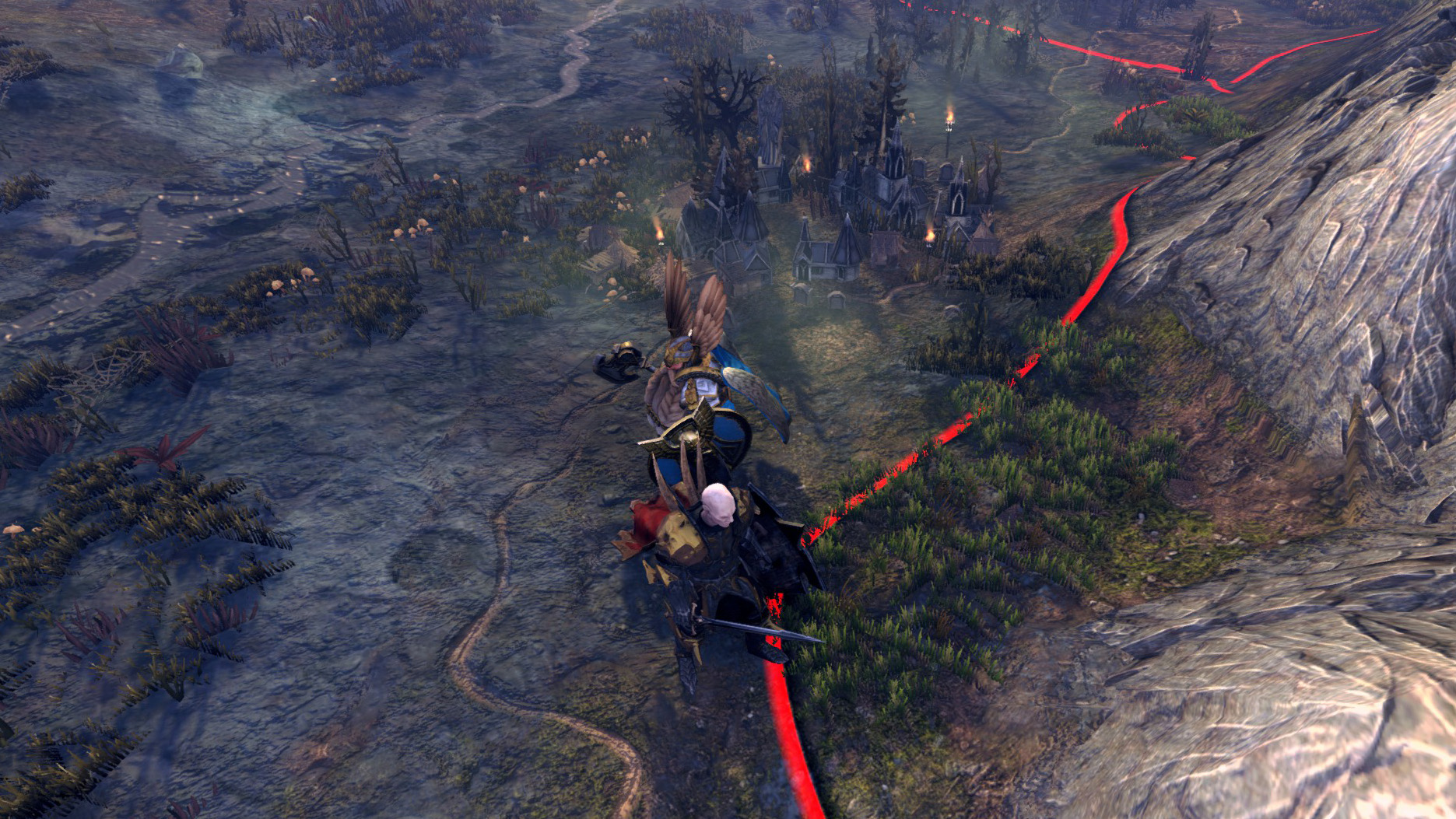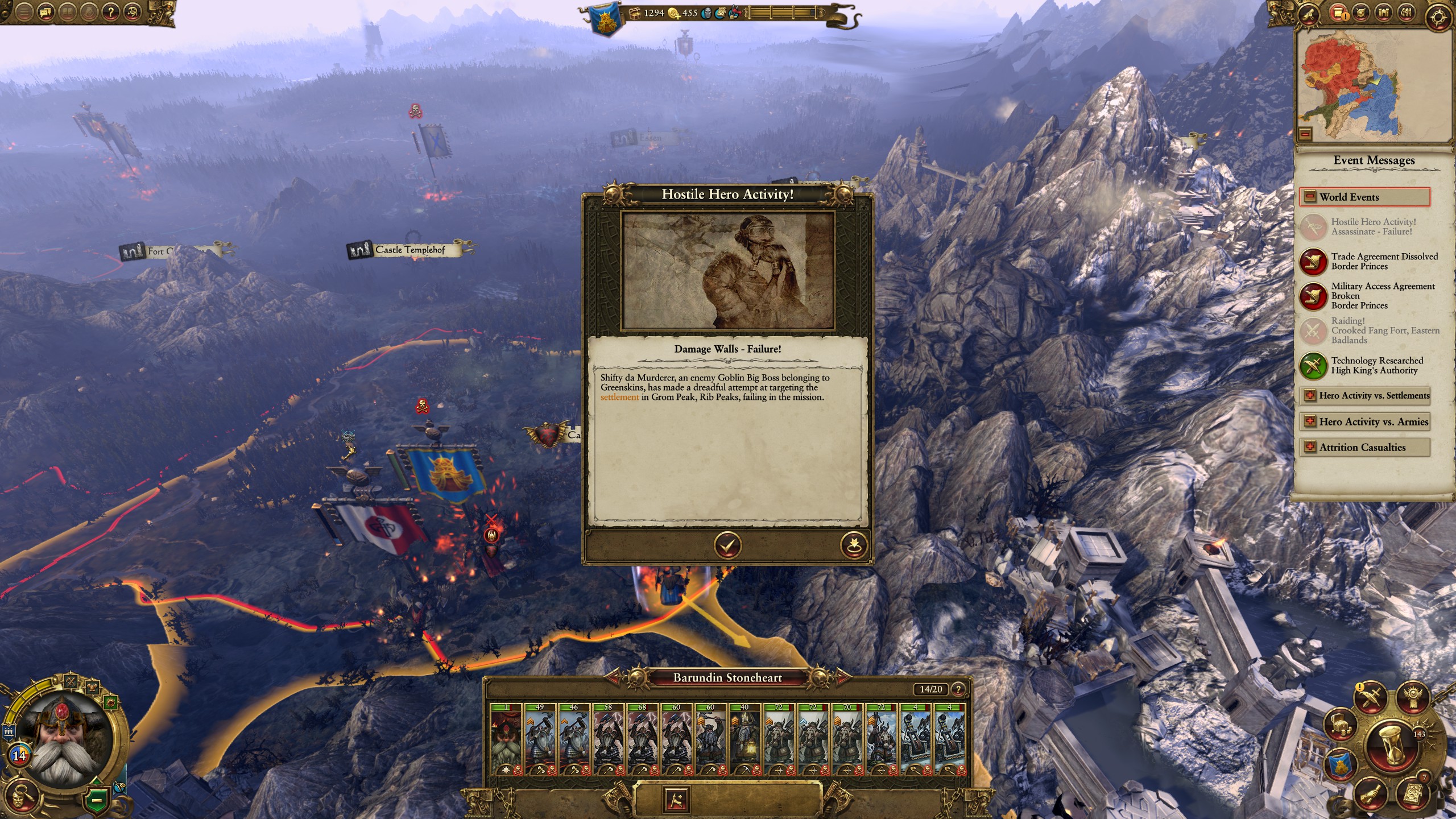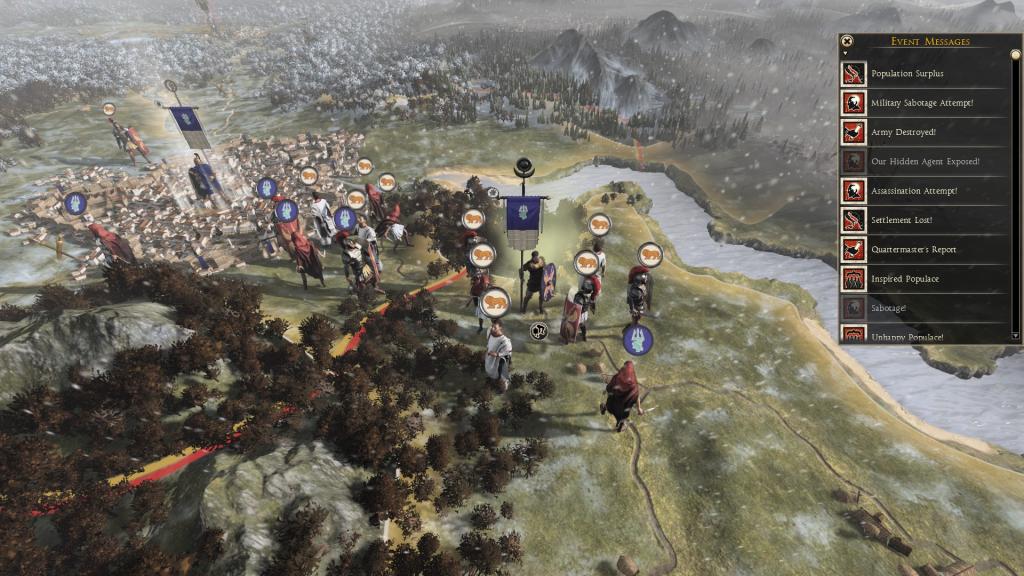It's time for Total War to overhaul its crappy agent system
Total War's battles are as fun as ever, but its agent actions are still boring busywork.

Twenty one hours into my Total War: Warhammer campaign, my Dwarfen hero Dorin Brightaxe was making a multi-turn trek across the southern badlands of Greenskin territory. He’d been doing a lot of trudging lately. A couple of turns ago I sent him to assassinate an Orc hero—the Book of Grudges demanded retribution, obviously—but now I had to drag him back to our capitol Karaz-a-Karak, hammer unbloodied. It had to be done because a pair of Greenskin agents were camped at Karaz-a-Karak, sabotaging its buildings turn after turn, grinding my economy to a halt. At this point, my fun had mostly ground to a halt too.
This isn’t the first time agents have soured a Total War campaign for me. In fact, it’s happened in every campaign I’ve played since picking up the series with Shogun 2 in 2011. On a Total War campaign map, your units are either leaders (Lords in Warhammer, generals in most previous games) who shepherd armies, or agents, who offer more specialized functions. They can spread religion or influence in a region, increase the populace’s happiness or production or technology research rate. They can also, more critically, assassinate other agents and leaders, sabotage cities, and inflict casualties on armies. Playing against a campaign map covered with AI enemies all but guarantees that eventually you’ll spend a chunk of every turn dealing with a neverending stream of agents. Which is done by countering them with your own agents. And so on ad infinitum. It’s an ouroboros of strategic mundanity.
Total War: Warhammer has more fun with its units than any previous game in the series (I’m still psyched about flamethrower Dwarfs with beard armor), and Creative Assembly did a great job making every race significantly distinct. Greenskins need to build up a Waaagh!! through incessant fighting; Dwarfs have to fulfill grudges to keep the populace happy; Vampire Counts spread corruption and raise the dead to quickly build huge armies. Lords gain experience from completing RPG-esque quests and earn special equipment, a first for Total War. But in other ways, the basic elements of the series are still there under the fantasy skin, mostly unchanged, and they’re starting to feel pretty stagnant. Politics and agents are the worst of them.
Warhammer’s fantasy makeover can’t conceal Total War’s tired, overly simple diplomacy system, which doesn’t provide much nuance in terms of how you deal with other factions. You can establish a trade agreement (but only with a clear path to their capital), make non-aggression pacts, and offer money to sweeten the pot. This system hasn’t really evolved much since Empire: Total War in 2009 and feels like a huge missed opportunity for Total War to become a more balanced 4X game.
The dated diplomacy system is a weakness, but it’s at least functional. It doesn’t make me want to stop playing—I just settle for bloodthirsty conquest most of the time. But the outdated agent system is an annoying, clunky obstacle to fun once I really dig into a campaign. In Total War: Warhammer, Creative Assembly tried to make agents more interesting by allowing them to participate in battle. They’re no longer just strategic pawns to be moved around the campaign map, but powerful warriors who can turn the tide of battles and equip the same powerful weapons and items as lords. Sounds great! But it doesn’t quite work out in practice.

Using agents (or heroes, as they’re called in Warhammer) in battle really is fun—I love sending my Dwarf Runesmith into the fray to buff infantry units with runic magic. But once I get far enough into a campaign to expand my territory and have a few enemies, their agents start to pour into my territory, and only counter-agent actions can stop them from sabotaging my cities and armies. While the agent action to damage a building is relatively inexpensive, say 600 gold, repairing those buildings can cost double or triple that. And if they’re quarries or other buildings that generate income, suddenly you’re making less money and getting slapped in the face with high repair costs. Ignoring them isn’t really an option.
With the Dwarfs, that means pulling my Thanes, who are best at assassinations, out of battle and sending them far across the map to deal with pests. The Dwarfs’ Book of Grudges also means regularly having to hunt down enemy agents with an assassin; ignoring the grudge leaves it on the ledger, and as the ledger fills the people get testy.
The biggest gaming news, reviews and hardware deals
Keep up to date with the most important stories and the best deals, as picked by the PC Gamer team.
Even without that wrinkle, playing with agents in general just isn’t much fun. Defeating enemy leaders in battle is satisfying, but killing them off on the campaign map with a lucky diceroll? Convenient, but not fulfilling, and it feels really unfair when it happens to you. Even when agent actions go your way, they quickly grow tedious. In Shogun 2 and Rome 2, it’s not too hard to convert enemy agents to your faction, which does give me a momentary rush of “screw you” glee.
Except the AI will just make more, and keep sending them, and I’ll keep converting them, well past the supposed agent recruitment cap. Having 20 agents sounds like a good thing, but in the end you’re still dealing with a mechanic that isn’t fun, and you have 20 extra units to micromanage every single turn, multiplying the mundane busywork.

I’m hardly the only one with this complaint. Threads like “Agents are still the least fun part about Total War” are easy to find in Total War communities, though of course agents have their fans, too. More damning, a search for “agents” in the Total War Steam Workshop returns many mods that limit agent numbers, reduce the AI’s agent spam, or disable them altogether.
Right now agents feel like a legacy system Creative Assembly used to shore up the lacking interactivity of Total War units. Leaders do nothing outside of battle—you place them in a settlement to give it passive bonuses or use them to march across the map, and little else. The developers wanted subterfuge and religious conversion and assassination, all vital to the history of war, but never did anything more interesting with those ideas than units that pass or fail on a die roll.
Total War: Warhammer’s quest system and item rewards, though simple, hint at a possible future. I can imagine the series evolving to give agents narrative events to accomplish instead of stock pass/fail options, more bearing on diplomacy and trade and other systems. Or maybe they’re better off as dedicated battle units. If Creative Assembly doesn’t give agents a complete rework for its next game, I’d rather dedicate my heroes to battle, where they can send a dozen Greenskins flying with a single hammer swing.
It’s time for Total War to either give each of the 4Xs their due (explore, expand, exploit, and exterminate), or ditch the stale strategy elements and go all-in on extermination.

Wes has been covering games and hardware for more than 10 years, first at tech sites like The Wirecutter and Tested before joining the PC Gamer team in 2014. Wes plays a little bit of everything, but he'll always jump at the chance to cover emulation and Japanese games.
When he's not obsessively optimizing and re-optimizing a tangle of conveyor belts in Satisfactory (it's really becoming a problem), he's probably playing a 20-year-old Final Fantasy or some opaque ASCII roguelike. With a focus on writing and editing features, he seeks out personal stories and in-depth histories from the corners of PC gaming and its niche communities. 50% pizza by volume (deep dish, to be specific).

